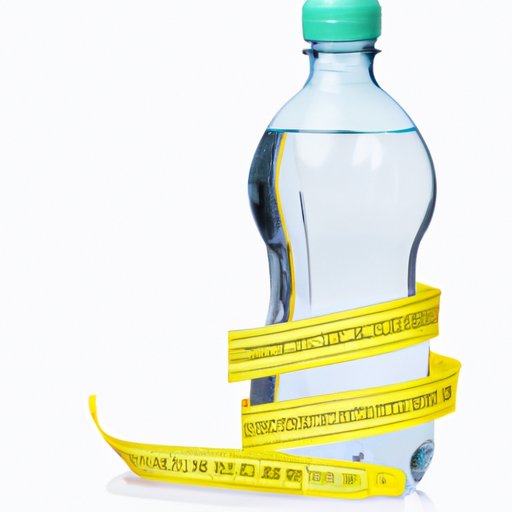
Introduction
When it comes to weight loss and overall health, we tend to focus on one number: the scale. But what about water weight? We often forget that our body is about 60% water and that water weight fluctuations are a normal part of the body’s natural processes. In this article, we will explore the truth about water weight, its benefits and drawbacks, and provide practical tips for managing it effectively.
Understanding the Truth About Water Weight: Is It Really Bad or Just a Natural Process?
Water weight refers to the extra water that is stored in your body’s tissues, creating a temporary weight gain. This common condition can be caused by a number of factors including a high-sodium diet, hormonal fluctuations, and even the weather. However, it’s important to note that water weight is not the same as body fat.
Your body needs water to function properly, and maintaining a healthy water balance is essential for overall health. When your body is in perfect balance, your kidneys are able to filter out excess water, maintaining a stable weight. An imbalance occurs when you consume too much water without excreting it, causing temporary water weight gain. It’s important to note that the difference between temporary and chronic water weight. Excess water retention could indicate a more severe underlying health issue and requires medical attention.
Busting Common Myths About Water Weight: Why It’s Not Always a Bad Thing
It’s a common misconception that all water weight is fat weight. Many people think that if they lose water weight, they’re losing precious fat mass; however, this isn’t necessarily true. Water weight can mask true weight loss progress, making it seem as though you’re not losing weight when you really are. Furthermore, healthy individuals experience water weight fluctuations daily. For example, after consuming a high-sodium meal or after exercising, temporary water weight gain may follow.
Is Water Weight Really That Bad? Exploring the Benefits and Drawbacks of This Natural Phenomenon
While excess water weight can cause swelling and discomfort, maintaining a healthy water balance can provide several benefits. Water is essential for maintaining proper hydration levels, which is important for proper organ function. It can also help lubricate your joints, regulate your body temperature, and maintain healthy blood pressure levels.
On the other hand, chronic water weight gain can have its drawbacks. Excess fluid retention may cause bloating and can even put a strain on your heart. Chronic water weight gain may be a sign of an underlying medical issue and should be addressed by a medical professional.
The Science Behind Water Weight: Debunking Its Negative Stigma and Embracing Its Positive Effects
The biological mechanisms behind water weight retention is related to the complex systems that control fluid balance. Your kidneys, liver, and hormones all play an important role in the process. All cells in the body require a form of water to function properly. With hydration being an essential part of a healthy body, the level of water in the body affects how the systems carry out their normal functions.
Of course, there are real-life examples of athletes who use water weight as an advantage during intense competition. For example, boxers may engage in practices like sauna suits or spit to lose excess water weight in preparation for weigh-ins or athletic performance. But these extreme weight-cutting practices can be dangerous and should be done under the supervision of a medical professional.
All About Water Weight: The Good, the Bad, and the Truth You Need to Know
Water weight is a natural and necessary process in the body, but it can easily be managed with a few practical tips. Drinking enough water can help flush out excess sodium and prevent retention of extra water. A balanced diet with an emphasis on lower sodium intake can also help reduce excess water weight. In addition, a regular exercise routine can help maintain healthy kidney function and promote fluid balance in the body.
Should You Really Worry About Water Weight? A Comprehensive Guide to Understanding the Role of Fluid Retention in Your Body
Water weight is just one factor to consider when it comes to overall health and wellness. While it’s important to be aware of chronic water retention, healthy individuals do not need to be overly concerned about day-to-day fluctuations in water weight. As always, it’s important to maintain a well-balanced diet, stay hydrated, and exercise regularly to keep your body functioning at its best.
Water Weight: Friend or Foe? A Balanced Perspective on the Pros and Cons of This Common Condition
In conclusion, it’s clear that water weight is a natural process that occurs in the body. It’s important to be aware of the difference between temporary and chronic water weight, as well as the benefits and drawbacks of this common condition. With that being said, don’t become too fixated on the number on the scale. Stay hydrated, eat a healthy and balanced diet, and exercise regularly to maintain a healthy water balance. Remember to always consult your doctor if you’re experiencing chronic water retention.




